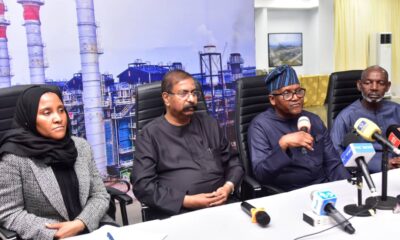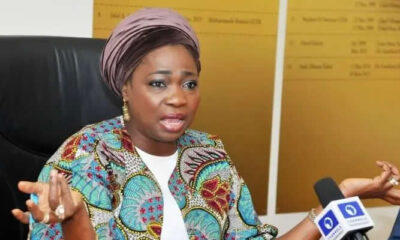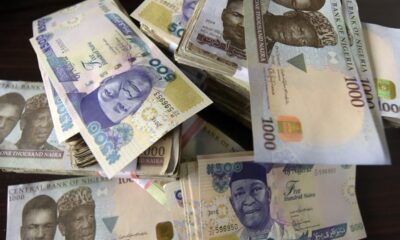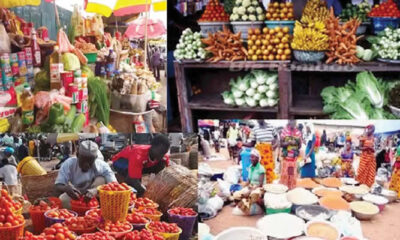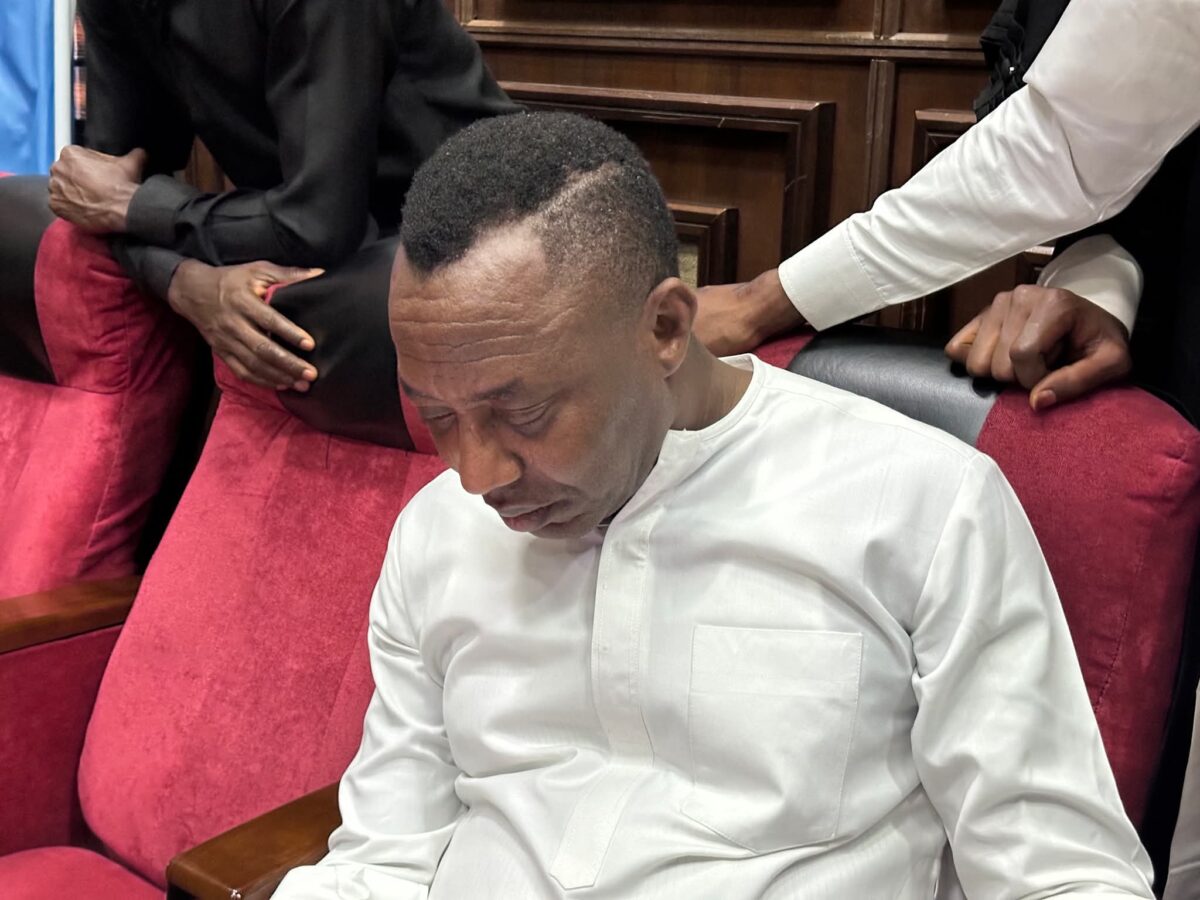Justice Tijani Ringim of the Federal High Court sitting in Ikoyi, Lagos State has admitted in evidence more documents tendered by the Economic and Financial Crimes Commission (EFCC) against the former Acting Director-General of the Nigerian Maritime Administration and Safety Agency (NIMASA), Haruna Baba Jauro, and two others.
Jauro alongside one Dr. Dauda Bitrus Bawa and a company, Thlumbau Enterprises Limited, are being prosecuted on 19 counts bordering on stealing and money laundering to the tune of N304,118,500.
The Lagos Zonal Office of the EFCC first arraigned Jauro and the two others on April 12, 2016, before retired Justice Mojisola Olatoregun of the Federal High Court sitting in Ikoyi, Lagos.
The anti-graft commission in a statement said at the resumed sitting, the prosecution presented its third prosecution witness (PW3), Orji Chukwuma, an investigator with the Commission.
Led in evidence by the prosecution counsel, Rotimi Oyedepo (SAN), Chukwuma of the Chairman Monitoring Unit, EFCC, Abuja, told the court that he was the Head of Special Task Force Unit 3, Lagos Zonal Command, at the time of the investigation of the alleged fraud.
When asked if he knew the defendants and the company, Thlumbau Enterprises Limited, the witness whom the Commission said his team was tasked with investigating money laundering and other financial crimes, told the court that he came across all the defendants in the course of his investigation, upon receipt of intelligence reports against the management of NIMASA.
He explained that in the course of investigations, various enquiries were made to banks and staff members of NIMASA and that interviews were also conducted on staff, banks’ employees, contractors to NIMASA, corporate organizations, individuals who made payments into the 3rd and 1st defendants’ accounts as well as some beneficiaries of the proceeds made by them.
According to him, investigations revealed that the 3rd defendant was incorporated by the 1st defendant, using his children, while the 2nd defendant operated the account of the 3rd defendant.
Chukwuma also told the court: “Further investigation revealed that proceeds of unlawful activities of the 1st defendant, while he was the Executive Director of Finance and Administration in NIMASA, was concealed and laundered for his benefit through the 3rd defendant. The proceeds were used to acquire a property in Abuja.”
He further informed the court that funds co-mingled with loans taken from Aso Savings Limited to also acquire two other houses in Lagos.
When he was asked if he could identify both Exhibits A1 and A2 which are the 3rd defendant’s statement of account containing the proceeds of the enquiries and investigations he carried out, Chukwuma identified Exhibit A series as the 3rd defendant’s mandate and statement of accounts, responses to the EFCC’s enquiries as well as the instruments used to move money out of the 3rd defendant’s account.
Giving evidence about Exhibit A1 and the share structures of the 3rd defendant, the witness told the court that one Samuel Haruna Baba had 500,000 ordinary units; one Salome Haruna Baba owned 250,000 ordinary shares and one Ila Haruna owned 200,000 ordinary shares.
According to him, the names mentioned are children and relations of the 1st defendant. He added that their addresses are the same as his.
Asked if he could identify the enquiries he recovered while conducting investigations in NIMASA, Chukwuma did, adding that they were documents from NIMASA to banks to effect payments.
The prosecution sought to tender a copy of the internal memo of NIMASA dated July 8, 2014, and two letters of instructions to Access Bank from NIMASA dated January 3, 2014; to which the court admitted all the evidence and marked as exhibits B, B1 and B2.
The prosecution counsel also asked the witness if there was an exchange of correspondence regarding the Aso Savings loans he earlier talked about, to which he answered in the affirmative, adding that it contained the mandate, statement of account, certificate of identification and mortgage correspondence of the first defendant.
The prosecution counsel further sought to tender the letter dated February 10, 2016, from Aso Savings and Loans Plc to the EFCC with its attachments, and the court also admitted all of them in evidence and marked them as Exhibit C.
Testifying more about Exhibit A and some entries made on January 6, 2014, Chukwuma explained that there was an inflow of N15 million ( Fifteen Million Naira) that came from the Committee of Intelligence belonging to NIMASA.
“The Committee is set up and funded by NIMASA for specific purposes related to security.
“Investigations showed from the account statement of January 23, 2014, that the sum of N12m (Twelve Million Naira) out of the N15m (Fifteen Million) was transferred to the account of the first defendant in Aso Savings to manage the loans he took to buy property.
“On July 10, 2014, another sum of N20m (Twenty Million Naira) was also paid into the account of the third defendant.
“Subsequently, the 2nd defendant also benefited the sum of N1,470,000 (One Million, Four Hundred and Seventy Thousand Naira), which was later returned to the Commission in a draft,” he said.
When he was shown copies of the draft by the prosecution counsel, he identified them as the statement of one Ishaq Banabas, who returned the total sum of N35m (Thirty-five Million Naira) through five different bank drafts to the EFCC Draft Registration Form Receipt.
Draft Registration Form receipts were admitted in evidence and marked as exhibits D and D1 respectively. The PW3, in his further testimony, told the court that the sum of N20m ( Twenty Million Naira) was transferred by Kishini Nigeria Limited and another N5m( Five Million Naira) was paid to the third defendant by Eminent Consult.
The 3rd defendant’s account, according to him, was co-mingled and aggregated to the sum of N52m (Fifty-two Million Naira) paid to one Helen Mbonu, who used it to purchase a house for the first defendant. When asked about the various entries in the exhibit A series, the PW3 told the Court that there were several inflows from various individuals and companies into the 3rd defendant’s accounts, including Sulaiman Mohammed, Komas Mega BDC, Dan Asabe, Mustapha Buka, Dulbangon Enterprise, Kostam Mega Concept, Kolomi Mohammed, Abubakar Mansur, Mukaila Jubrila, Alkawali Nigerian Enterprise and Hassan.
Asked if the third defendant rendered any services that led to the various cash payments totalling N120m, the witness told the court that the 3rd defendant never rendered any services, adding that “the payments are proceeds of unlawful activities.”

 BIG STORY1 day ago
BIG STORY1 day ago
 BIG STORY5 days ago
BIG STORY5 days ago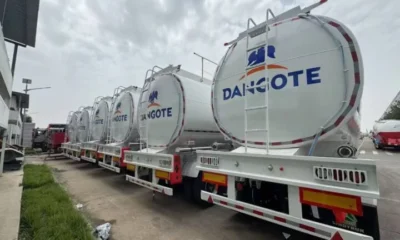
 BIG STORY4 days ago
BIG STORY4 days ago
 BIG STORY4 days ago
BIG STORY4 days ago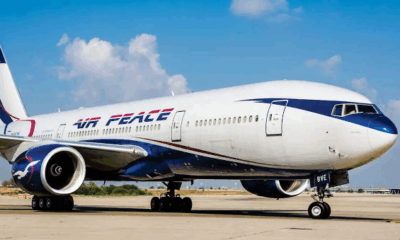
 BIG STORY4 days ago
BIG STORY4 days ago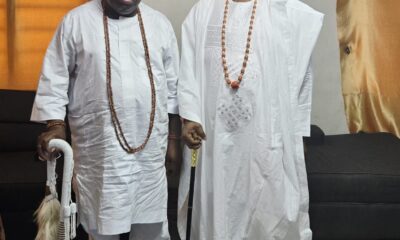
 BIG STORY4 days ago
BIG STORY4 days ago
 BIG STORY1 day ago
BIG STORY1 day ago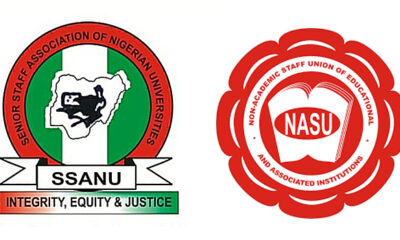
 BIG STORY6 hours ago
BIG STORY6 hours ago









